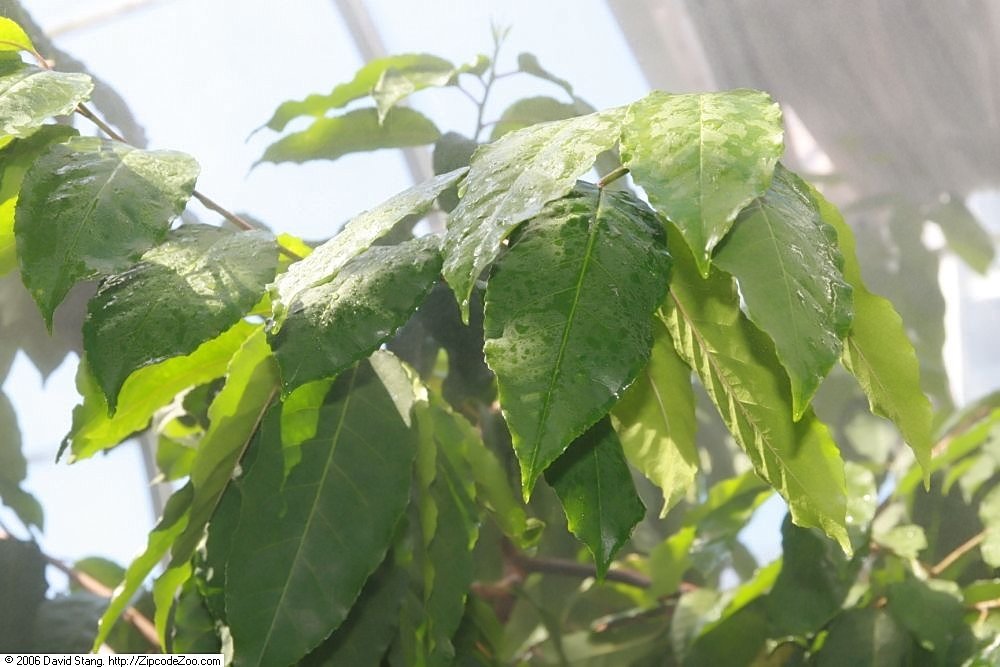
Pygeum
Pygeum, sourced from the bark of the Vulnerable African cherry tree, is primarily used to treat prostate conditions in men. The bark is harvested by local people, typically for very low wages, then exported in either dried or powdered form for processing by pharmaceutical companies in Europe. Bark harvesting can destroy the trees if not conducted responsibly and has resulted in dramatic reductions in its population.
Names
Pygeum, Prunus africana
Found in ingredients as
Pygeum, Prunus, African cherry
Used in
Top producers
Cameroon, Democratic Republic of Congo, Uganda
Conservation status
CITES:
IUCN Red List:
Appendix II
Opportunities
Research
Scientific evidence on best-practice wild harvest methods could improve the sustainability of the Pygeum harvest. Meanwhile, it may be possible to purchase Pygeum from sustainable cultivated sources and to support cultivation trials, to reduce pressure on wild populations.
Conservation & Domestication
Connect with local groups, research organisations, and businesses to encourage research into sustainable harvesting or cultivation methods and frequencies, to alleviate pressure on wild stands and support the rare and endemic birds and primates that access P. africana as an important food source, including the red colobus and the black and white colobus monkeys.
Incentivise domestication - generally understood as the most viable option to sustain future trade and local livelihoods - and separate supply chains for cultivated bark, including supporting market access for local producers.
Monitoring & Data
Encouraging rigorous monitoring systems, adherence to regulations (such as CITES), and adoption of best practices can support conservation, long-term sustainable use, and contribution to livelihoods.
Traditional Knowledge, Intellectual Property Rights (IPR), and Access and Benefit Sharing (ABS)
ABS agreements may contribute to the sustainable exploitation and use of wild products such as P. africana. Industry stakeholders should become familiar with these terms (further resources are available in the WildCheck Report) as well as how they pertain to, and can be respected through, P. africana supply chains.
Standards & Certification
Certifications can be a supporting tool to ensure responsible sourcing. A wide range of standards are available that can be applied to wild-harvested plants, such as FairWild, Union for Ethical BioTrade (UEBT), Fairtrade, FairForLife, Programme for the Endorsement of Forest Certification (PEFC), Forest Stewardship Council (FSC), Organic, Rainforest Alliance, and Certificate of Origin (e.g. DOP/PDO, PGI, TCG). The FairWild Standard is well suited to certify CITES Appendix-II listed wild-sourced plant ingredients.
Biological Risk
Classified as Vulnerable on the IUCN Red List.
Harvested primarily for its bark and can therefore be destroyed through collection. This is the single major threat faced across the species’ range and has resulted in dramatic population reductions in some areas.
Local population sizes are small and scattered thinly throughout its range.
Social Risk
Assessed for Cameroon, Uganda and the DRC
Although no cases have been identified specifically in Pygeum supply chains, the main harvesting countries are highly vulnerable to modern slavery and have multiple documented cases of child labour in similar agricultural activities. These countries also experience fairly high levels of inequity associated with corruption, and workers can experience systematic violations of their rights to freedom of association and collective bargaining.
Low wages have been documented amongst Pygeum harvesters.
Women can be discriminated against participating in the harvest.
Concerns have been raised about the lack of respect for indigenous rights over the pharmacological knowledge of Pygeum as a medicinal plant.
There are suggestions of corruption in bark harvesting, with reports of “bark poachers” using bribery to persuade local communities to grant access to the trees.
Header image: Prunus africana © David J. Stang / Wikimedia Commons





